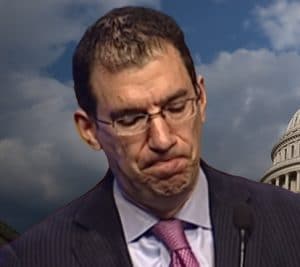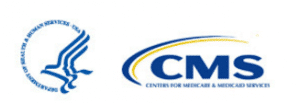
CMS’ Andy Slavitt backpedals after stating that the meaningful use program “as it has existed, will now be effectively over and replaced with something better.”
Editor’s Note: Subsequent to the publication of this article, CMS has renamed the “Meaningful Use” programs and MIPS “Advancing Care Information” category to “Promoting Interoperability”.
Meaningful Use looked to be done for, then it was restored. What does it mean for hospitals and physicians? We’ll take a look here, including a bit about the new “hardship exemption” guidance.
On January 11, 2016 CMS Acting Administrator Andy Slavitt made comments at the J.P. Morgan Annual Health Care Conference. He introduced his presentation stating that he wanted to provide transparency so that the health care community knew what CMS was thinking and working on. To that extent, he shared that they were working on implementing the MACRA bill, and that they were “in the process of ending Meaningful Use and moving to a new regime culminating with the MACRA implementation.”
He continued, “The Meaningful Use program as it has existed, will now be effectively over and replaced with something better.”

National Coordinator for Health IT Karen DeSalvo assists Slavitt with clarification
It took only a week for the backpedaling. On January 19, Slavitt and National Coordinator for Health IT Karen DeSalvo co-authored a much more measured and thoughtful post on the CMS Blog in which they clarified that for now, the “existing [meaningful use] regulations — including meaningful use Stage 3 — are still in effect.” They are in the process of implementing the MACRA regulations which they feel authorizes them to make changes to the Medicare program of Meaningful Use for physicians, although no such authority exists for changing Meaningful Use for Hospitals, nor for physicians participating in the Medicaid version of the Meaningful Use program.
The next day, on January 20, DeSalvo and her team continued with the clarification. They stated that they were planning to release a proposed rule in the Spring of 2016, related to implementation of the MACRA legislation, although the MIPS program enacted by MACRA requires that 25% of a physician’s composite score will be based on meaningful use of certified health IT.
For hospitals, and for physicians participating in the Medicaid MU program, no imminent change is expected in the Meaningful Use rules. However, as per Slavitt’s and DeSalvo’s 1/19/2016 blog post referenced above, CMS is exploring options for updating these programs to reward providers for outcomes, to allow providers flexibility, to promote innovation and new technologies and to encourage interoperability.
For physicians participating in the Medicare program, here are the rules currently in effect:
- 2016 is the final year for incentive payments. These will range from $0 to $4000 per physician depending on what year the physician started in the program. For early adopters who started in 2011, all incentive monies have been paid so there is no incentive payment for the year 2016. For those who first participated in 2012 or 2013, the incentive payment is $2000. For those who began in 2014, the incentive payment is $4000 per physician. (For those who began in 2015 or later, there are no incentive payments.)
- No Medicare penalties. If a physician fails to successfully attest to meaningful use during 2016, there is no Medicare penalty. The previous penalty scheme would have led to a penalty in 2018, however the MACRA bill sunsetted the current MU penalty scheme effective 12/31/2017.
 Hardship Exemption Available at CMS Site
Hardship Exemption Available at CMS Site
UPDATE: CMS has released an FAQ outlining the documentation requirements for submitting the new hardship application to avoid the 2017 payment adjustment. Guidance includes that, ” Providers should retain documentation of their circumstances for their own records, but no such documentation is required for review by CMS.”
Your two key questions, we believe, are: is your practice or hospital eligible for this exemption; and what documentation should you keep on site? Of course, the larger question goes to your best practice for ongoing meaningful use compliance and policies in your organization on which Eagle will be pleased to consult with you.
Next up: What’s MACRA all about?

